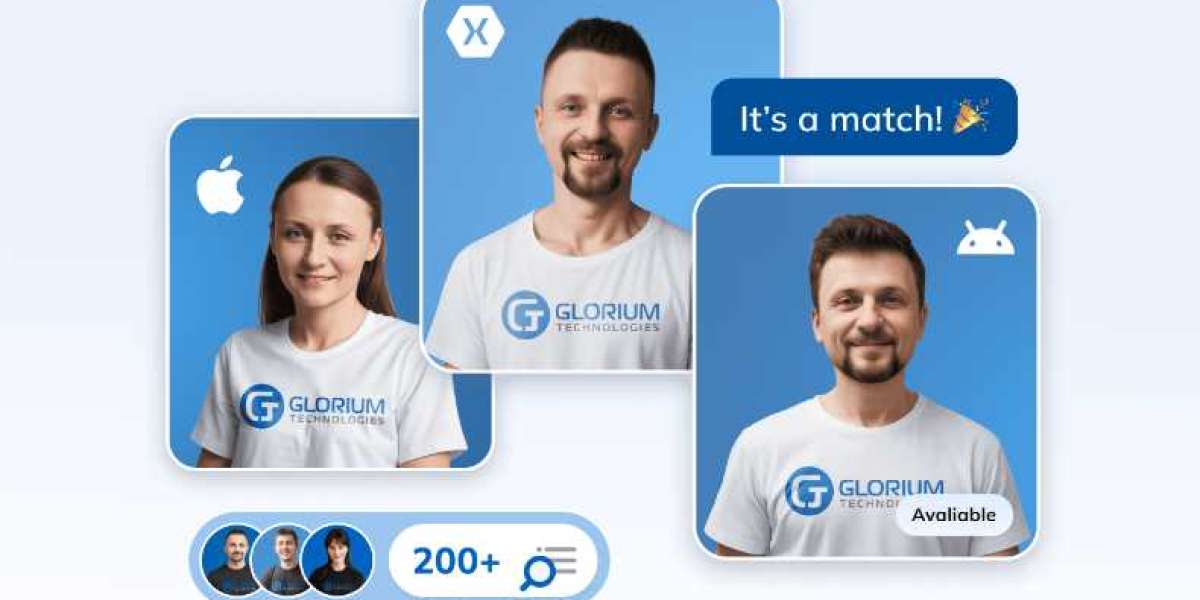Developed by Google, Flutter enables developers to create natively compiled applications for mobile, web, and desktop from a single codebase. As businesses increasingly adopt Flutter for their mobile development needs, hiring the right Flutter developers becomes crucial to ensuring the success of your projects. This article delves into the key skills and expertise you should look for when hire Flutter developers to ensure that you bring on board professionals who can effectively leverage this technology to meet your business goals.
1. Proficiency in Dart Programming Language
Flutter applications are built using Dart, a language developed by Google that is optimized for client-side development. A deep understanding of Dart is essential for Flutter developers, as it allows them to write efficient, maintainable code. Key aspects to evaluate include:
- Knowledge of Dart Syntax and Features: Ensure that candidates are proficient in Dart syntax, object-oriented programming principles, and asynchronous programming.
- Experience with Dart Libraries: Familiarity with Dart’s standard libraries and third-party packages is important for efficient development and integration.
- Problem-Solving with Dart: Assess their ability to solve complex problems using Dart’s features and capabilities.
2. Expertise in Flutter Framework
Understanding the core components of the Flutter framework is vital for building responsive and high-performance applications. Look for developers who demonstrate:
- Widget Composition: Proficiency in creating and managing widgets, which are the building blocks of Flutter applications. This includes both stateful and stateless widgets.
- State Management: Familiarity with state management solutions such as Provider, Riverpod, Bloc, or Redux. Effective state management is crucial for maintaining app performance and reliability.
- Flutter’s Rendering Engine: Knowledge of Flutter’s rendering engine and how it impacts performance and UI responsiveness.
3. Experience with Mobile Development Best Practices
Flutter developers should have a solid grasp of mobile development principles and best practices, including:
- UI/UX Design Principles: Understanding of mobile UI/UX design guidelines and the ability to translate designs into responsive, intuitive interfaces.
- Performance Optimization: Skills in optimizing app performance, including efficient use of resources, reducing load times, and ensuring smooth animations.
- Cross-Platform Considerations: Knowledge of how to handle platform-specific differences and leverage Flutter’s capabilities to create a consistent experience across iOS and Android.
4. Integration Skills
Flutter apps often need to interact with various external services and APIs. Therefore, developers should have experience with:
- API Integration: Proficiency in integrating RESTful APIs and handling asynchronous data retrieval and manipulation.
- Third-Party Libraries: Ability to incorporate and utilize third-party libraries and plugins for additional functionality.
- Database Integration: Experience with local databases (e.g., SQLite, Hive) and cloud-based databases (e.g., Firebase).
5. Testing and Debugging
A robust testing and debugging strategy is essential for delivering high-quality applications. Look for developers who have experience with:
- Unit Testing: Writing and executing unit tests to ensure individual components function correctly.
- Widget Testing: Performing widget tests to verify that the UI elements behave as expected.
- Integration Testing: Conducting integration tests to validate that different parts of the app work together seamlessly.
- Debugging Tools: Proficiency with debugging tools and techniques specific to Flutter, including using Flutter DevTools for performance monitoring and issue diagnosis.
6. Version Control and Collaboration
Effective version control and collaboration are critical in a team environment. Ensure that candidates are familiar with:
- Git: Proficiency in using Git for version control, including branching, merging, and resolving conflicts.
- Collaboration Tools: Experience with collaboration tools such as GitHub, GitLab, or Bitbucket, and an understanding of Agile methodologies and practices.
- Code Reviews: Participation in code reviews to ensure code quality and adherence to best practices.
7. Continuous Integration and Deployment (CI/CD)
CI/CD practices help streamline the development process and ensure consistent delivery of high-quality software. Key aspects to evaluate include:
- CI/CD Pipelines: Experience setting up and managing CI/CD pipelines for Flutter applications.
- Automated Builds and Deployments: Familiarity with automated build and deployment processes to various app stores and distribution platforms.
- Monitoring and Alerts: Knowledge of monitoring tools and alert systems to track app performance and identify issues proactively.
8. Soft Skills and Team Fit
Technical skills are crucial, but soft skills and cultural fit are equally important for successful collaboration. Look for developers who demonstrate:
- Communication Skills: Ability to articulate technical concepts clearly and collaborate effectively with team members and stakeholders.
- Problem-Solving Abilities: Strong analytical skills and the ability to tackle complex problems creatively.
- Adaptability: Willingness to learn new technologies and adapt to evolving project requirements.
- Team Collaboration: Experience working in diverse teams and contributing positively to team dynamics.
9. Portfolio and Past Projects
Reviewing a candidate’s portfolio and past projects can provide valuable insights into their capabilities and experience. Consider:
- Diversity of Projects: A range of projects showcasing different aspects of Flutter development, such as various types of apps (e.g., e-commerce, social networking, productivity).
- Project Complexity: Experience with both simple and complex projects, demonstrating their ability to handle a variety of challenges.
- Client Testimonials: Feedback from previous clients or employers regarding the developer’s performance and contributions.
10. Knowledge of Emerging Trends and Future Directions
Flutter is a rapidly evolving technology, so it’s beneficial to hire developers who stay updated on:
- Latest Flutter Updates: Awareness of recent releases, updates, and new features in Flutter.
- Industry Trends: Understanding of emerging trends in mobile development and how they might impact Flutter.
- Community Involvement: Participation in the Flutter community, such as contributing to open-source projects or engaging in forums and conferences.
Conclusion
Hiring the right Flutter developers is crucial to the success of your mobile app projects. By focusing on these key skills and expertise, you can ensure that you bring on board professionals who are not only proficient in Flutter but also aligned with your project goals and company culture. From technical proficiency in Dart and Flutter to experience with best practices and soft skills, evaluating candidates across these dimensions will help you build a strong development team capable of delivering high-quality, innovative applications.



